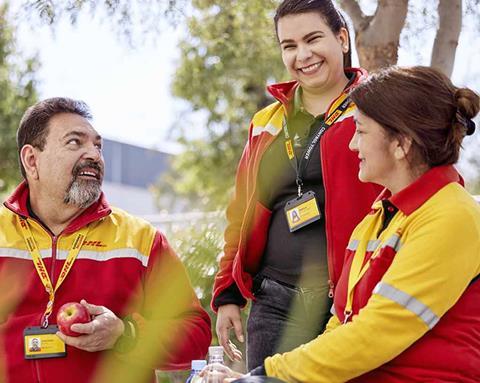
DHL Supply Chain is a logistics provider supporting a diverse range of industries including automotive, healthcare and retail. In the UK, it has around 31,500 employees ranging in age from school leavers right through to an 84-year-old customer service assistant based in London.
While 85% of the workforce is aged 30-plus, and the average age is 43.7 years, the organisation is keen to build a multigenerational workforce. Lindsay Bridges, global head of HR for DHL Supply Chain, explains: “We want to retain the knowledge and experience of older employees but also encourage younger people into the sector.”
As well as a proactive recruitment strategy, that sees it working with charities, schools and universities to reach out to younger people, it also ensures its reward and benefits package appeals to employees of all ages.
Health benefits play a key part. These include an employee assistance programme (EAP), a 24-hour GP service, flu jabs and mental health support. It also offers a health cash plan, which is available on a single, couple or family basis to reflect employees’ different needs. The organisation is always looking at ways it can support more employees, says Bridges. “The UK team will target EAP communications to different age and life stages with messaging on topics such as student debt, divorce and carers’ support,” she explains. “They work hard to make sure all employees know mental health support is available too. Our workforce is 70% male, rising to 96% across our lorry drivers, and as many men struggle to ask for help, we use tools such as the intranet and apps to reach them.”
The employer also uses its communications strategy to help create a supportive culture. Alongside posters and apps to promote health benefits, it cascades messages down through line managers and its network of wellbeing champions. “We provide them with the information and training they need to signpost where to get expert support,” says Bridges. “We’ll also use awareness days to raise the profile of different health issues so everyone feels included.”
Having a multigenerational workforce has also led to a rethink on its employee recognition scheme. A few years ago, as the demographics of the workforce shifted, it considered scrapping its long-service awards, which are given out for every five years’ service. “Instead, we decided to keep them and add in excellence awards so that all staff felt they could be recognised for their contribution to the business,” adds Bridges.
















